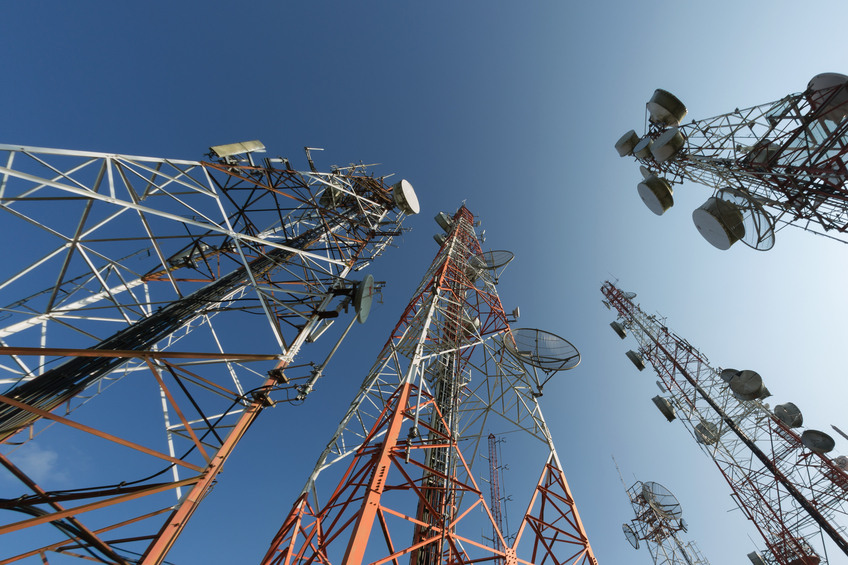Illinois Electrical and Laws/Rules/Ethics/Sexual Harassment 30 PDH Discount Package 3
Electrical Engineering Fundamentals: AC Circuit Analysis (E10-001)
Adequate Transformer Reserves (E02-032)
Electricity Grid - Resilience to Climate Change (E03-047)
Electricity Grid - Resilience to Hurricanes (E02-034)
Electricity Grid Cybersecurity (E02-033)
Protecting the Electric Grid from Geomagnetic Disturbances (E04-054)
Sexual Harassment Prevention for Illinois Professionals (IL1-002)
Engineering Laws, Rules, and Ethics for Illinois Professional Engineers (IL2-001)

This online engineering PDH course provides an overview of electrical theory and presents the basic electrical concepts used in the industry.
A basic understanding of electrical theory is important in any professional environment. Scientists, such as Faraday, Ohm, Lenz, and Kirchhoff have found that electricity seems to behave in a constant and predictable manner in a given condition. These scientists observed and described the predictable characteristics of electricity and electric current in the form of certain rules. These rules are often referred to as "laws".
Although we cannot see the electrons in motion, through experiments and observation we know how they behave. By learning the laws applying to the behavior of electricity and by understanding the methods of producing, controlling, and using it, electricity may be "learned" without ever actually seeing it.
This 4 PDH online course is applicable to electrical and mechanical engineers as well as other professionals who are interested in learning more about the theory and basics of electricity.
This PE continuing education course is intended to provide you with the following specific knowledge and skills:
- Familiarizing with the basic electrical terms and symbols
- Learning about the different types of electricity
- Learning about the atomic structure and electrical charge
- Knowing Ohm’s Law and the relationship between current, voltage and resistance
- Understanding the principles, characteristics and applications of DC and AC
- Familiarizing with basic electrical circuit requirements and characteristics
- Learning how to perform series and parallel circuit computations
- Gaining an overview of the construction of an electrical circuit
Upon successful completion of the quiz, print your Certificate of Completion instantly. (Note: if you are paying by check or money order, you will be able to print it after we receive your payment.) For your convenience, we will also email it to you. Please note that you can log in to your account at any time to access and print your Certificate of Completion.

This online engineering PDH course introduces the single phase AC, differences between AC and DC, AC applications, complex math based representation of AC circuits and associated circuit analysis in a simple, easy to understand, format. You will be introduced to the concept of power in the DC and AC realms, as well as, a comparison of DC and AC power. You will be provided with examples of power in practical applications and associated computations.
You will also be provided with an explanation of the concept of power factor on the basis of vectors, voltage and current graphs, power and apparent power. You will understand the impact of power factor on overall power quality, energy productivity, energy cost, mean time between failures and the kVA demand.
This 10 PDH online course is applicable to engineers of all disciplines, as well as technicians, facilities managers and executives who are not intimately familiar with electrical engineering principles and practices.
This PE continuing education course is intended to provide you with the following specific knowledge and skills:
- Understanding the fundamentals of alternating current (AC)
- Understanding the distinction between DC and AC electricity through graphical representation
- Understanding the significance of average value of AC and transformation of AC to DC
- Understanding of DC and application of DC in electro-deposition process
- Knowing how polar and rectangular formats are used to represent alternating current, alternating voltage, impedance and power
- Learning about isolation transformers, autotransformers, voltage regulating transformers, current transformers, the distinction between ideal transformers, real transformers, single phase transformers, and three phase transformers
- Understanding of four transformer configurations of three phase transformers and their applications
- Familiarization with AC power, DC Power, single phase and three phase power
- Learning how to compute electrical power and energy required to move mass
- Learning how to compute power factor
- Understanding of leading and lagging power factors and respective corrective measures
- Learning how to perform economic analysis associated with power correction measures
- Understanding the role of frequency in power factor correction and Automatic Switching PF Correcting Capacitor Systems
- Learning how to assess flow of power and energy from "steam to wire" and "water to wire"
In this professional engineering CEU course, you need to review the course document titled, "Electrical Engineering Fundamentals: AC Circuit Analysis" which is based on the principles in the book Electrical Engineering for Non-Electrical Engineers, S. Bobby Rauf, Fairmont Press, 2013.
E10-001 - APPENDICES
Upon successful completion of the quiz, print your Certificate of Completion instantly. (Note: if you are paying by check or money order, you will be able to print it after we receive your payment.) For your convenience, we will also email it to you. Please note that you can log in to your account at any time to access and print your Certificate of Completion.

This online engineering PDH course discusses large power transformers, presents their different challenges, and provides various plans and recommendations on how to resolve them.
Large power transformers (LPT) serve as a key function to electricity grid infrastructure by managing voltage for efficient, long-distance power transmission and use by grid customers. Electric utilities and the U.S. Department of Energy face several challenges in ensuring that LPTs, both in use and in reserve, are available in adequate numbers to maintain a resilient electricity grid.
This 2 PDH online course is applicable to electrical engineers and other technical staff who are interested in gaining a better understanding of the challenges facing large power transformers.
This PE continuing education course is intended to provide you with the following specific knowledge and skills:
- Familiarizing with LPTs and their function in the electric grid system
- Exploring the challenges of LPT manufacturing
- Understanding the challenges to ensure adequate transformer reserves
- Learning the various plans and recommendations presented to maintain LPTs
Upon successful completion of the quiz, print your Certificate of Completion instantly. (Note: if you are paying by check or money order, you will be able to print it after we receive your payment.) For your convenience, we will also email it to you. Please note that you can log in to your account at any time to access and print your Certificate of Completion.

This online engineering PDH course provides a comprehensive analysis of the potential effects of climate change on the electricity grid and examines strategies to improve its resilience.
Climate change presents substantial challenges for the grid, affecting generation, transmission, distribution, and electricity demand. These challenges could incur costs amounting to billions of dollars annually, jeopardizing economic stability and national security.
The course investigates the vulnerabilities of the U.S. electric grid to climate change-related incidents and evaluates key measures implemented by the Department of Energy (DOE) and the Federal Energy Regulatory Commission (FERC) since 2014 to enhance grid resilience. As private companies largely own the grid, federal guidance and standards are crucial for effective resilience planning.
This 3 PDH online course is designed for electrical engineers and other technical professionals seeking to learn how to strengthen grid resilience against climate change.
This PE continuing education course is intended to provide you with the following specific knowledge and skills:
- Understanding the effects of climate change on the electricity grid
- Examining the anticipated costs associated with climate change-related outages and infrastructure damage
- Familiarizing with the roles and responsibilities of the Department of Energy (DOE) and the Federal Energy Regulatory Commission (FERC) in bolstering grid resilience
- Learning how federal agencies assist private companies, which predominantly own the grid, through guidance, research, and standards
- Learning how resilience investments can alleviate the impacts of climate change on the electricity grid while safeguarding economic and national security
Upon successful completion of the quiz, print your Certificate of Completion instantly. (Note: if you are paying by check or money order, you will be able to print it after we receive your payment.) For your convenience, we will also email it to you. Please note that you can log in to your account at any time to access and print your Certificate of Completion.

This online engineering PDH course provides an overview on the effects of hurricanes on the electric grid system in the United States and the efforts being made to enhance the grid resilience.
Hurricanes pose significant threats to the electricity grid in some U.S. coastal areas and territories and are a leading cause of major power outages. In recent years, hurricanes have impacted millions of customers in these areas. Adoption of technologies and other measures could improve the resilience of the grid so that it is better able to withstand and rapidly recover from severe weather; this could help mitigate the effects of hurricanes.
This 2 PDH online course is applicable to electrical engineers and other professionals who are interested in learning more about how to protect the electric grid from hurricanes.
This PE continuing education course is intended to provide you with the following specific knowledge and skills:
- Familiarizing with the electric grid system in the U.S.
- Understanding the effect of hurricanes on the grid
- Learning the efforts being made to improve grid resilience
- Knowing the recommendations proposed by GAO to improve the grid resilience
Upon successful completion of the quiz, print your Certificate of Completion instantly. (Note: if you are paying by check or money order, you will be able to print it after we receive your payment.) For your convenience, we will also email it to you. Please note that you can log in to your account at any time to access and print your Certificate of Completion.

This online engineering PDH course provides an insight on the importance of cybersecurity on the electric grid systems.
The U.S. grid’s distribution systems—which carry electricity from transmission systems to consumers and are regulated primarily by states—are increasingly at risk from cyberattacks. Distribution systems are growing more vulnerable, in part because their industrial control systems increasingly allow remote access and connect to business networks. As a result, threat actors can use multiple techniques to access those systems and potentially disrupt operations.
This 2 PDH online course is applicable to electrical engineers and other technical personnel who are interested in learning more about how to protect the electric grid from various cyberattacks.
This PE continuing education course is intended to provide you with the following specific knowledge and skills:
- Understanding the importance of electric grid cybersecurity
- Learning why modern electric grid systems are at risk of cyberattacks
- Familiarizing with the different methods used that compromise the security of industrial control systems
- Understanding the potential impact of cyberattacks on industrial control systems
- Knowing the potential threat actors that may pose significant threats to the grid’s distribution systems
- Learning the various actions aimed at improving grid distribution systems’ cybersecurity
In this professional engineering CEU course, you need to review the course document titled, “Electricity Grid Cybersecurity”, which is based on the United States Government Accountability Office (GAO) document titled “ELECTRICITY GRID CYBERSECURITY: DOE Needs to Ensure Its Plans Fully Address Risks to Distribution Systems”, publication no. GAO-21-81.
Upon successful completion of the quiz, print your Certificate of Completion instantly. (Note: if you are paying by check or money order, you will be able to print it after we receive your payment.) For your convenience, we will also email it to you. Please note that you can log in to your account at any time to access and print your Certificate of Completion.

This online engineering PDH course provides an overview of geomagnetic disturbances and their effects on the U.S. electric grid.
Geomagnetic disturbances (GMD), a result of space weather, pose a risk to the U.S. electric grid, although it is not clear how severe a risk. When GMDs occur, they can cause geomagnetically induced current (GIC) in the electric transmission grid, which can cause service disruption or damage under some circumstance.
This 4 PDH online course is applicable to electrical engineers and other professionals who are interested in learning more about how to protect the electric grid from geomagnetic disturbances.
This PE continuing education course is intended to provide you with the following specific knowledge and skills:
- Familiarizing with the basic of Geomagnetic disturbances (GMD)
- Gaining an overview of the history of the electric grid in the U.S.
- Understanding the challenges faced by the grid due to space weather
- Learning how GMDs affect the electric grid
- knowing how to limit the effects of geomagnetic disturbances on the electric grid
Upon successful completion of the quiz, print your Certificate of Completion instantly. (Note: if you are paying by check or money order, you will be able to print it after we receive your payment.) For your convenience, we will also email it to you. Please note that you can log in to your account at any time to access and print your Certificate of Completion.

This online engineering PDH course presents a training on sexual harassment prevention to adopt and actively implement policies that ensure that workplaces are safe for employees to report and express their concerns about sexual harassment.
The Illinois Human Rights Act makes it a civil rights violation “[f]or any employer, employee, agent of any employer, employment agency or labor organization to engage in sexual harassment.” 775 ILCS 5/2-102(D).
The Illinois General Assembly finds that tolerance of sexual harassment has a detrimental influence in workplaces by creating a hostile environment for employees, reducing productivity, and increasing legal liability. Therefore, every employer in the State of Illinois is required to provide employees with sexual harassment prevention training that complies with section 2-109 of the Illinois Human Rights Act (“IHRA”).
This 1 PDH online course is applicable to professionals licensed in the State of Illinois and who are required to demonstrate continuing professional competency in sexual harassment prevention training as a condition of their license renewal.
This PE continuing education course is intended to provide you with the following specific knowledge and skills:
- Gaining an overview of sexual harassment prevention consistent with the Illinois Human Rights Act
- Familiarizing with types of unlawful sexual harassment, unwelcome behavior and working environment
- Learning about examples of conduct that may constitute unlawful sexual harassment
- Understanding sexual harassment in online environments
- Understanding employer responsibilities in the prevention, investigation, and corrective measures on sexual harassment
- Familiarizing with the Federal and State statutory laws concerning sexual harassment including remedies available to victims
- Exploring different workplace sexual harassment scenarios
Upon successful completion of the quiz, print your Certificate of Completion instantly. (Note: if you are paying by check or money order, you will be able to print it after we receive your payment.) For your convenience, we will also email it to you. Please note that you can log in to your account at any time to access and print your Certificate of Completion.

This online engineering PDH course presents the laws and rules of ethics and professional responsibility governing the practice of engineering in the State of Illinois.
Engineering ethics is (1) the study of moral issues and decisions confronting individuals and organizations involved in engineering and (2) the study of related questions about moral conduct, character, ideals and relationships of peoples and organizations involved in technological development (Martin and Schinzinger, Ethics in Engineering).
Excerpts from the Professional Engineering Practice Act of 1989, 225 ILCS 325 and the Illinois Administrative Code, Part 1380, which relate to the rules of profession conduct, continuing education requirements, proper use of seal and other pertinent regulatory provisions are presented in this course.
This 2 PDH online course is applicable to Professional Engineers licensed in the State of Illinois who are required to demonstrate continuing professional competency in the Illinois Laws, Rules and Ethics as a condition of license renewal. For each renewal period, every licensee must complete thirty (30) professional development hours, at least one (1) of the 30 hours must be in professional ethics and one (1) of the 30 hours must be in the laws and rules regulating the practice of engineering in the State of Illinois.
This PE continuing education course is intended to provide you with the following specific knowledge and skills:
- Familiarizing with the laws and rules regulating the practice of engineering in the State of Illinois
- Learning about engineering ethics, the rules of professional conduct and responsibility
- Understanding the role of the Illinois Board and its disciplinary authority
- Understanding the continuing education requirements in the State of Illinois
- Gaining an overview of disciplinary cases, violations and their corresponding penalties imposed by the Illinois Board
Upon successful completion of the quiz, print your Certificate of Completion instantly. (Note: if you are paying by check or money order, you will be able to print it after we receive your payment.) For your convenience, we will also email it to you. Please note that you can log in to your account at any time to access and print your Certificate of Completion.